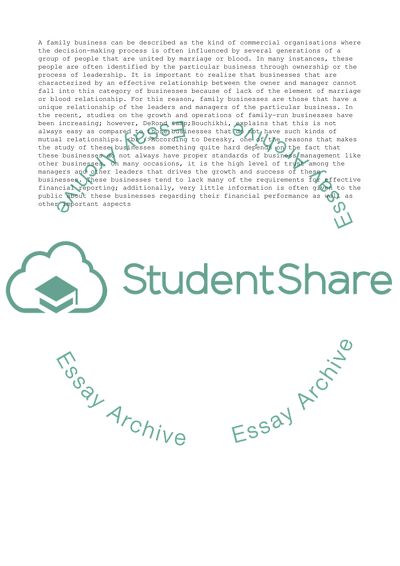Cite this document
(“Management of a Family Business Essay Example | Topics and Well Written Essays - 3250 words”, n.d.)
Management of a Family Business Essay Example | Topics and Well Written Essays - 3250 words. Retrieved from https://studentshare.org/management/1702395-management-of-a-family-business
Management of a Family Business Essay Example | Topics and Well Written Essays - 3250 words. Retrieved from https://studentshare.org/management/1702395-management-of-a-family-business
(Management of a Family Business Essay Example | Topics and Well Written Essays - 3250 Words)
Management of a Family Business Essay Example | Topics and Well Written Essays - 3250 Words. https://studentshare.org/management/1702395-management-of-a-family-business.
Management of a Family Business Essay Example | Topics and Well Written Essays - 3250 Words. https://studentshare.org/management/1702395-management-of-a-family-business.
“Management of a Family Business Essay Example | Topics and Well Written Essays - 3250 Words”, n.d. https://studentshare.org/management/1702395-management-of-a-family-business.


